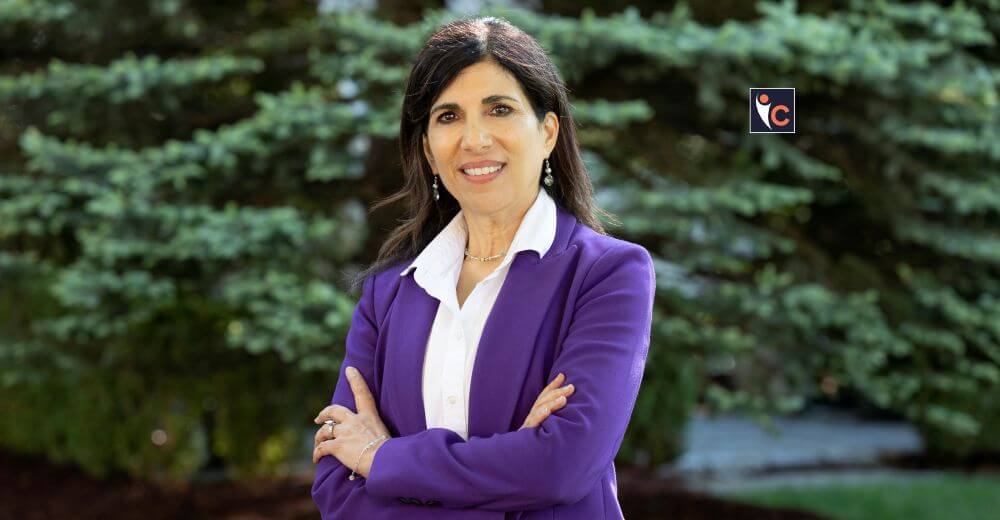Chief Nursing Officers are visionary leaders shaping healthcare’s future by championing innovation, nurturing collaborative environments, advocating for nurses’ voices, and driving evidence-based practices. As architects of care, they elevate the nursing profession, optimize patient outcomes, and cultivate a culture of excellence within healthcare organizations.
With a unique combination of compassion and strategic vision, Karen Keaney has been a transformative force in healthcare. As the Chief Nursing Officer (CNO) and Vice President of Patient Care Services at Winchester Hospital, part of Beth Israel Lahey Health, Keaney’s extensive experience encompasses emergency services, case management, urgent care, ambulatory care including home health and hospice.
Keaney’s journey in healthcare leadership is marked by her firm commitment to both patient care and the well-being of her staff. As a leader who took on the role of CNO in the challenging post-pandemic era, Keaney has had to navigate the complexities and uncertainties brought about by COVID-19. The pandemic’s aftermath has necessitated a visionary and adaptive approach to leadership, highlighting her resilience and forward-thinking mindset.
As you read on, discover how Karen Keaney’s leadership is transforming Winchester Hospital, creating a safe and supportive environment for both patients and staff, and fostering a culture of excellence and innovation!
A Personal Mission and Professional Purpose
Keaney’s healthcare journey began with a personal mission to improve the lives of others. Over time, her motivation expanded to include a commitment to the well-being of employees as well as patients. “I will never lose sight of my professional purpose as a nursing leader in that we exist for the good of those we serve,” she emphasizes. This dual focus on patient and staff well-being is a foundation of her leadership philosophy.
Navigating Uncharted Waters Post-Pandemic
Taking on the role of CNO in the aftermath of the COVID-19 pandemic, Keaney recognized the challenges of navigating uncharted waters. The pandemic has had a lasting impact on the healthcare industry, necessitating a visionary approach to leadership. “With all of the challenges we face in the current healthcare climate, my vision for nursing at Winchester Hospital includes continually sustaining an environment where it is safe to both give and receive high-quality care,” she states.
Creating a Safe and Supportive Workplace
A critical aspect of Keaney’s vision is creating a workplace that provides physical, psychological, and clinical safety. “Shaping the vision for the future at Winchester Hospital includes recognizing and addressing the needs of all nurses and members of the multiprofessional team,” she explains. Ensuring that staff have the necessary tools and support to perform successfully in their practice is paramount. Keaney is committed to addressing issues within the context of a Just Culture, emphasizing that performance improvement is a continuous process requiring involvement from all stakeholders.
Keaney elaborates on her commitment to a safe workplace, “Our responsibility extends beyond clinical safety; we must also prioritize the psychological well-being of our staff. This involves creating an environment where open communication is encouraged, and support systems are in place for those facing the stresses inherent in healthcare work.”
Promoting Inclusion and Belonging
Keaney’s vision also includes promoting an environment of inclusion where every member of the team feels a sense of belonging. “The future vision includes promoting an environment of inclusion where a sense of belonging can be felt and appreciated by all, regardless of experience or tenure,” she asserts. This commitment to inclusivity is essential for nurturing a cohesive and motivated workforce.
To achieve this, Keaney has supported various efforts aimed at enhancing inclusivity within the hospital. These include focused programs on communication skill development and formal and informal forums where employees can voice their concerns and suggestions. “By actively listening to our staff and addressing their needs, we build a more supportive and unified workplace,” she explains.
Sustaining a Culture of Excellence
Underpinning Keaney’s leadership approach is a dedication to sustaining a culture of excellence, innovation and continuous improvement. This is achieved through the hospital’s Professional Governance Model, which empowers nurses to identify opportunities for improvement from both clinical and practice perspectives. “The goal of our Professional Governance Model is to empower nurses on many levels, resulting in improved practice and strong engagement, which also enhances nurse retention,” she explains. This model is critical for delivering safe, high-quality, patient-centered care.
Keaney highlights the importance of nurse-led councils within this framework. “These councils enable nurses to take ownership of their practice, cultivating a sense of responsibility and engagement that translates into better patient care and job satisfaction,” she says. By involving nurses in decision-making processes, Winchester Hospital ensures that those on the front lines of care are integral to shaping policies and practices.
Addressing Recruitment and Retention Challenges
The post-pandemic era has brought enhanced challenges, particularly in terms of recruitment and retention. Many nurses have left their hospital-based roles or retired earlier than planned. Keaney believes that these issues can be addressed through astute leadership and collaborative partnerships among nursing, professional development, and human resource professionals. “Hospitals must be committed to enriching nursing onboarding and development programs and must offer new hires the opportunity to experience a higher degree of support and safety incumbent in the process,” she advises.
Keaney describes the comprehensive onboarding programs now in place at Winchester Hospital. “We have developed a robust orientation process that includes mentorship, ongoing training, and support systems designed to integrate new hires smoothly into our team,” she explains. By ensuring that new nurses feel supported and valued from day one, the hospital aims to improve retention rates and build a more stable workforce.
Strategic Focus on Financial Recovery and Service Enhancement
Financial recovery and strategic enhancement of services are additional challenges facing CNOs in the current healthcare space. Keaney emphasizes the importance of colleague engagement and efficient workflows to support patient throughput and diminish the risk of patient boarding in the Emergency Department. “This ever-changing healthcare landscape gives nurses opportunities to use skills beyond their basic practice and contribute to addressing the needs of our patients and the community,” she notes.
Keaney has spearheaded initiatives aimed at optimizing operational efficiencies, such as implementing structured and collaborative approaches to patient flow as well as enhancing interdisciplinary collaboration. “By streamlining our processes and improving communication across departments, we can better manage patient flow and reduce wait times,” she explains. These efforts are essential for ensuring that patients receive timely and effective care, even amid the financial constraints many hospitals are facing.
Developing Future Leaders
Keaney is dedicated to equipping Winchester Hospital for future success by offering opportunities for nurses to pursue leadership paths. “As a CNO, I am responsible not only for the current state but also for equipping our organization for success in future years,” she states. By enriching the experiences of nurses interested in leadership, Keaney aims to develop a skilled and prepared cadre of future leaders.
To support this goal, Keaney has supported advancement and education programs that provide nurses with the skills and knowledge necessary to advance their careers. “These include mentorship opportunities, leadership training workshops, and exposure to various aspects of hospital and system strategy that impact areas of care delivery” she explains. By nurturing talent from within, Winchester Hospital ensures a steady pipeline of qualified leaders ready to take on future challenges.
Advice for Aspiring Nurse Leaders
For those aspiring to leadership roles, Keaney offers several key pieces of advice. First, she emphasizes the importance of humility and the skills of appreciative inquiry. “This approach enables leaders to empower nurses in realizing and developing solutions to identifiable problems,” she explains. Engaging nurses in identifying solutions based on their expertise is crucial for promoting engagement and retention.
Keaney also advises aspiring leaders to remain open to professional feedback. “The strongest nurse leaders have welcomed all forms of feedback along their career path for the benefit of their professional growth and development,” she notes. Embracing feedback is essential for continuous improvement.
Finally, Keaney highlights the need for future leaders to understand the organizational mission and goals while maintaining a strong connection to care delivery and the care delivery team. “I believe knowing this will encourage nurses at Winchester Hospital to consider a leadership path as many desires to sustain their connection with patients and those delivering care at the bedside,” she says.
Read More: Click Here










